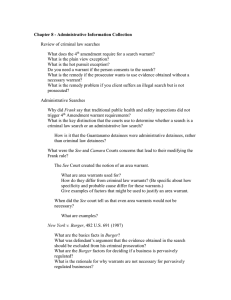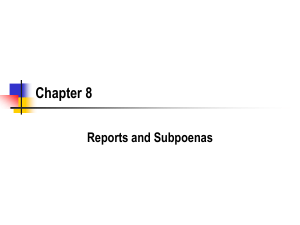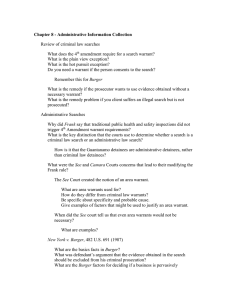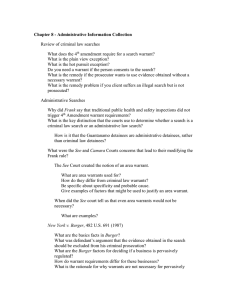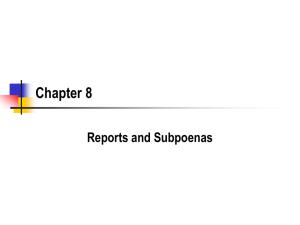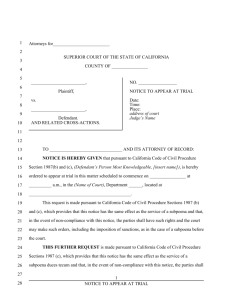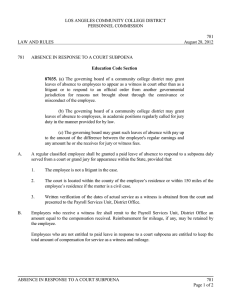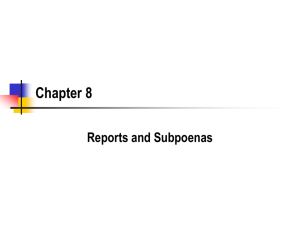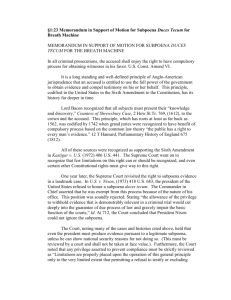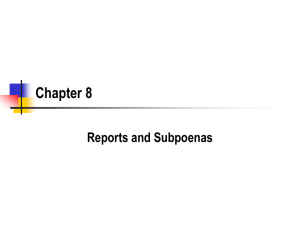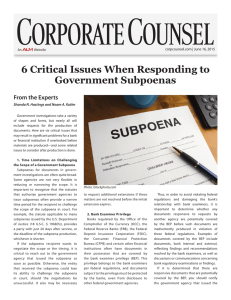Chapter 8 - Medical and Public Health Law Site
advertisement
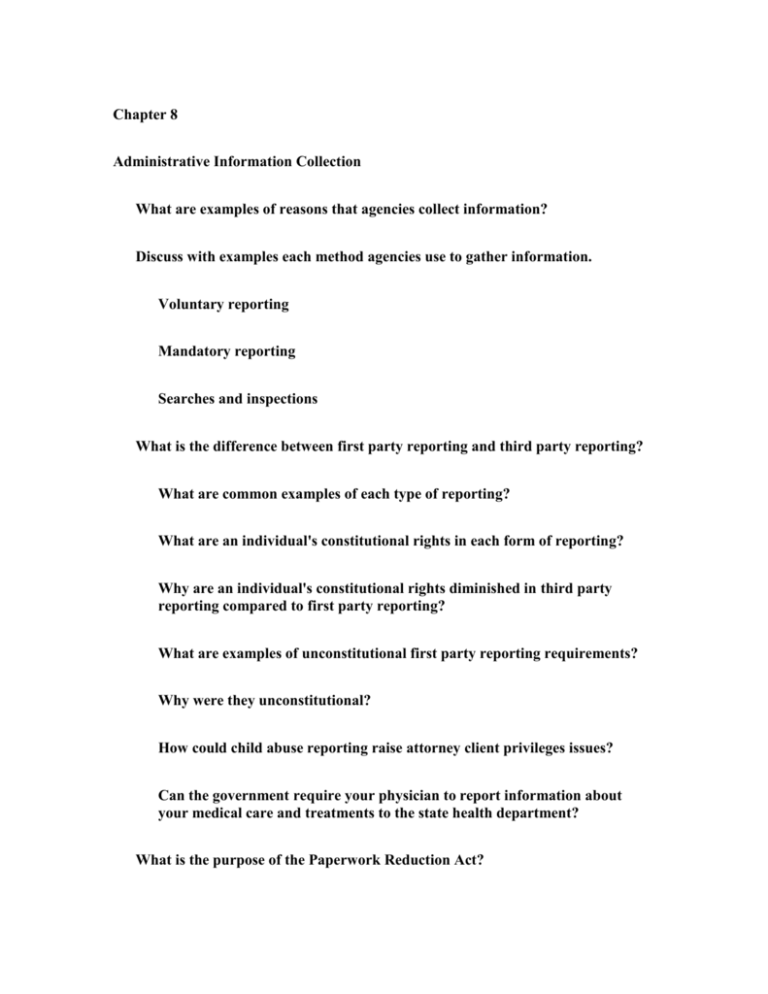
Chapter 8 Administrative Information Collection What are examples of reasons that agencies collect information? Discuss with examples each method agencies use to gather information. Voluntary reporting Mandatory reporting Searches and inspections What is the difference between first party reporting and third party reporting? What are common examples of each type of reporting? What are an individual's constitutional rights in each form of reporting? Why are an individual's constitutional rights diminished in third party reporting compared to first party reporting? What are examples of unconstitutional first party reporting requirements? Why were they unconstitutional? How could child abuse reporting raise attorney client privileges issues? Can the government require your physician to report information about your medical care and treatments to the state health department? What is the purpose of the Paperwork Reduction Act? What are the legal consequences if an agency covered by the act does not comply with it in promulgating a data collection form? Does it apply to subpoenas? What are the due process rights for administrative subpoenas and how do these differ from criminal law due process rights? What is the difference between a reporting requirement and a subpoena? Which can require the creation of new records? How are each enforced? Your client has been served with an administrative subpoena. What are the two options for dealing with the subpoena if your client does not want to comply? What are the Morton Salt factors? Are you likely to succeed if you contest an administrative subpoena using these factors? What is the Silver Platter Doctrine in criminal law? In the context of private data aggregators such as Equifax and Facebook, how does the Silver Platter Doctrine undermine constitutional protections? What are the likely limits on the government's use of third party sources to avoid criminal law warrant requirements? Are there any constitutional limits on the administrative use of data from third party aggregators? What are transaction documents and why are they easy to get with administrative subpoenas? What is the difference between a first party subpoena and a third party subpoena? When does an individual retain some rights against a third party subpoena? What are examples of situations where an individual does not have rights against a third party subpoena? What is self-incrimination? Is forcing your client to give a blood sample a self-incrimination issue? If not, what is it? Does corporations have self-incrimination rights? If not, why not? When does self-incrimination apply in administrative proceeding? What does Marchetti v. United States, 390 U.S. 39 (1968) tell use about required records? What is the usual result if your client claims a 5th amendment privilege in an administrative proceeding and refuses to testify? If your client does provide the testimony, may it be used against him in a criminal proceeding? Are there circumstances where the criminal court may exclude this testimony provided in an administrative proceeding? How can the DA or the court cure self-incrimination conflicts? How did the See and Camara Courts modify the Frank Court's rule on warrants for administrative searches? Why don't warrantless administrative searches violate the 4th amendment? What are area warrants used for, why are they required, and how do they differ from criminal law warrants? Be specific about specificity and probable cause. What are the Burger factors for deciding if a business is pervasively regulated? How do warrant requirements differ for these businesses? What is the rationale for why warrants are not necessary for pervasively regulated businesses? Why was criminal prosecution allowed for evidence obtained in an administrative search in Burger? How can licensing and permits meet the Burger factors and allow warrantless searches? LA decides to crack down on auto theft and passes a law requiring wrecking yards to record all vin #s and whether they have been altered or defaced. It is illegal to receive parts with altered vin #s. Is this a 5th amendment issue? What about requiring bystanders at an accident to give their names to the police? What are the issues when an administrative search, such as a restaurant inspection, turns up evidence of an unrelated crime - say the health inspector finds the cook's cocaine stash? What did Frank tell us? Why would allowing this undermine the rationale for area warrants?
